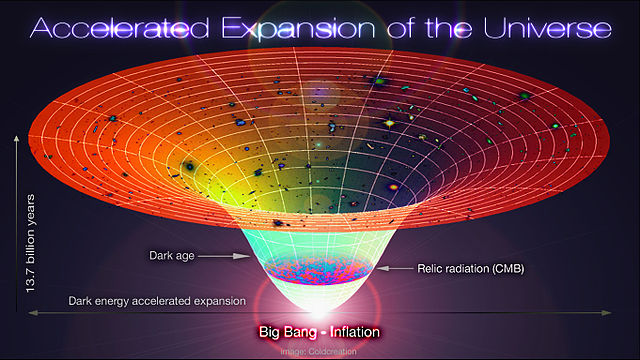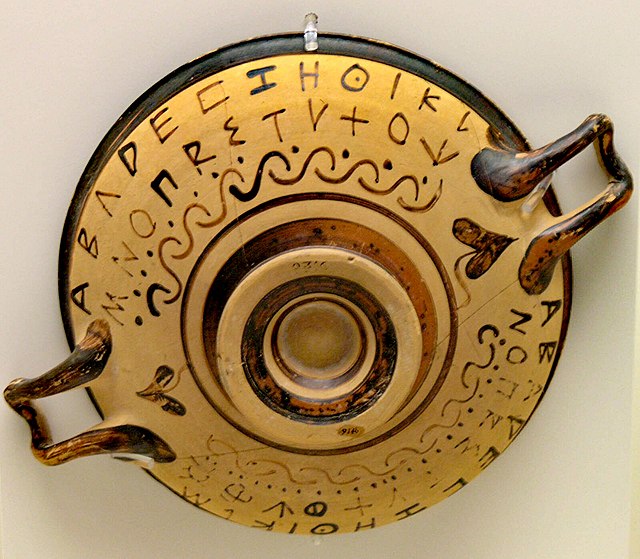In cosmology, the cosmological constant, alternatively called Einstein's cosmological constant,
is the constant coefficient of a term that Albert Einstein temporarily added to his field equations of general relativity. He later removed it, however much later it was revived and reinterpreted as the energy density of space, or vacuum energy, that arises in quantum mechanics. It is closely associated with the concept of dark energy.
Estimated ratios of dark matter and dark energy (which may be the cosmological constant) in the universe. According to current theories of physics, dark energy now dominates as the largest source of energy of the universe, in contrast to earlier epochs when it was insignificant.
Lambda-CDM, accelerated expansion of the universe. The time-line in this schematic diagram extends from the Big Bang/inflation era 13.7 Byr ago to the present cosmological time.
Lambda is the eleventh letter of the Greek alphabet, representing the voiced alveolar lateral approximant IPA: [l]. In the system of Greek numerals, lambda has a value of 30. Lambda is derived from the Phoenician Lamed. Lambda gave rise to the Latin L and the Cyrillic El (Л). The ancient grammarians and dramatists give evidence to the pronunciation as (λάβδα) in Classical Greek times. In Modern Greek, the name of the letter, Λάμδα, is pronounced.
The Greek alphabet on a black figure vessel, with a Phoenician-lamed-shaped lambda. The gamma has the shape of modern lambda.



